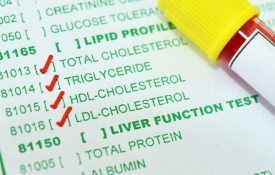-

New Research from Psychological Science
A sample of research on discounting past and future events, episodic recollection, and visual attention.
-

It’s Time for Psychological Science to Become More Entrepreneurial
Entrepreneurs have brought us smartphones, GPS, and online shopping. What drives these innovators? Why do some succeed while most fail? Psychological scientists face a ripe opportunity to help answer these questions, says APS Fellow Robert Baron.
-
Stop Trying to Raise Successful Kids
As anyone who has been called out for hypocrisy by a small child knows, kids are exquisitely attuned to gaps between what grown-ups say and what grown-ups do. If you survey American parents about what they want for their kids, more than 90 percent say one of their top priorities is that their children be caring. This makes sense: Kindness and concern for others are held as moral virtues in nearly every society and every major religion. But when you ask children what their parents want for them, 81 percent say their parents value achievement and happiness over caring.
-

New Research from Clinical Psychological Science
A sample of research on clinical high-risk research, affective face processing, and the influence of depression on risky choices under time pressure.
-
Hungry, Hungry Hippocampus: The Psychology Of How We Eat
Anyone who's tried (and failed) to follow a diet knows that food is more than fuel. The reasons we eat are even embedded in our language. When we're in an unfamiliar place, we yearn for comfort food. We take one too many scoops of ice cream because we stress eat. We connect to others by breaking bread. Having spent decades studying the interplay between food, identity, and culture, psychologist Paul Rozin has come to appreciate that hunger isn't the only reason we head for the kitchen. He says, "Food is not just nutrition that goes in your mouth or even pleasant sensations that go with it.
-

Blood Test at Birth Could Predict Children’s Psychological Development
Babies born with high levels of bad cholesterol and a certain type of fat may face a heightened risk for social and psychological problems in childhood, scientists have found.

